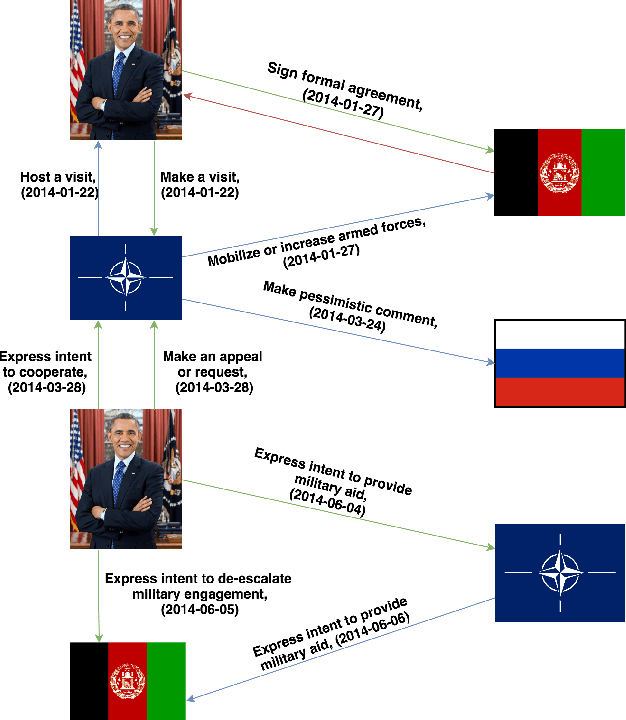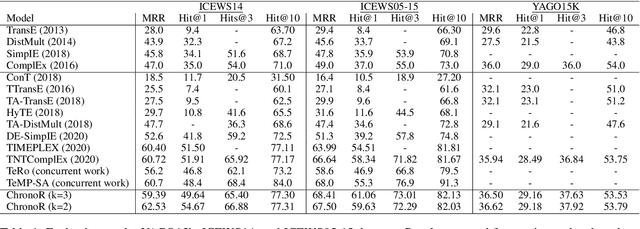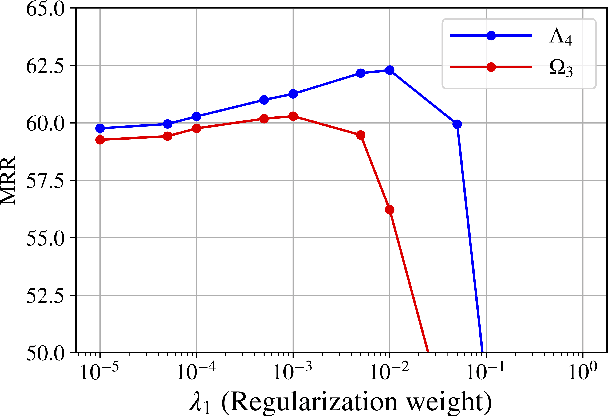ChronoR: Rotation Based Temporal Knowledge Graph Embedding
Paper and Code
Mar 18, 2021



Despite the importance and abundance of temporal knowledge graphs, most of the current research has been focused on reasoning on static graphs. In this paper, we study the challenging problem of inference over temporal knowledge graphs. In particular, the task of temporal link prediction. In general, this is a difficult task due to data non-stationarity, data heterogeneity, and its complex temporal dependencies. We propose Chronological Rotation embedding (ChronoR), a novel model for learning representations for entities, relations, and time. Learning dense representations is frequently used as an efficient and versatile method to perform reasoning on knowledge graphs. The proposed model learns a k-dimensional rotation transformation parametrized by relation and time, such that after each fact's head entity is transformed using the rotation, it falls near its corresponding tail entity. By using high dimensional rotation as its transformation operator, ChronoR captures rich interaction between the temporal and multi-relational characteristics of a Temporal Knowledge Graph. Experimentally, we show that ChronoR is able to outperform many of the state-of-the-art methods on the benchmark datasets for temporal knowledge graph link prediction.
 Add to Chrome
Add to Chrome Add to Firefox
Add to Firefox Add to Edge
Add to Edge